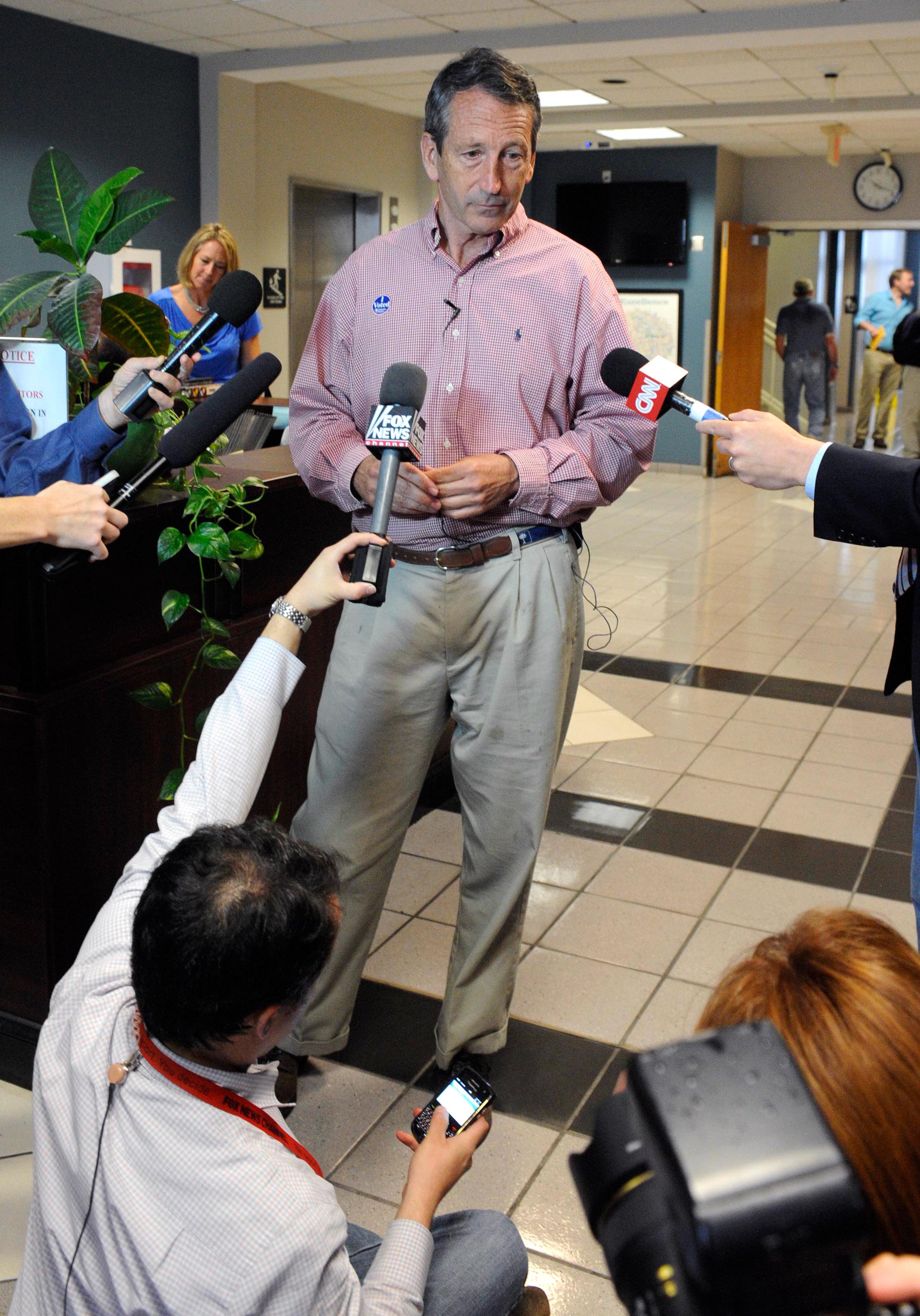Now that we’ve all moved on from his incredible psychodrama, two or three questions remain about Mark Sanford.
When will he return to Congress? I’m told he’ll be sworn in next Wednesday.
Will he retain his seniority? He seems entitled to it—putting those six years he spent in Congress back onto his timecard would actually put him pretty high up in the GOP conference. But it’s up to the steering committee to decide.
How will he vote? I tried to figure this out while spending time on the trail. The last actual policy question I asked Sanford, on Tuesday, was about an upcoming vote to raise the debt ceiling. He’s campaigned against Elizabeth Colbert Busch’s willingness to raise it, and told the Charleston Post-Courier that he couldn’t imagine doing so.
That’s not what Republicans want to hear. They want to attach tax reform to a debt limit hike. Would Sanford go along?
“You’d have to look at it,” he told me. He took the chance to ruminate for a while.
I don’t think you can 100 percent prohibit [anything]. Politics is a process of trade-off. Based on what I know now, I’d say no. That’s what I have said. Would I make that 1,000 percent prescriptive? Well, it could be the best deal in recorded time. I think that I have a history of looking at things as they come down the pike, trying to be deliberative about doing so. We used to have these sort of Socratic debates, the staff would throw an idea down, whoever was the presenter would have to make case, and then the idea was to pick that person apart. It’s what we did at the Virginia business school. We did that with all vetoes in the eight years I had in the governorship. At times it became cannibalistic, really overdone, but my point was: If we can’t stand here, debate this idea such that people feel comfortable making that stand, guess what? When I’m talking out here to you all, and I can’t defend my viewpoint, I’ve got nothing to stand on. It would be part of any consideration, whether it’s the debt ceiling or anything else.
So the GOP gets another small-government philosopher—one who’s actually been an executive, but still.
